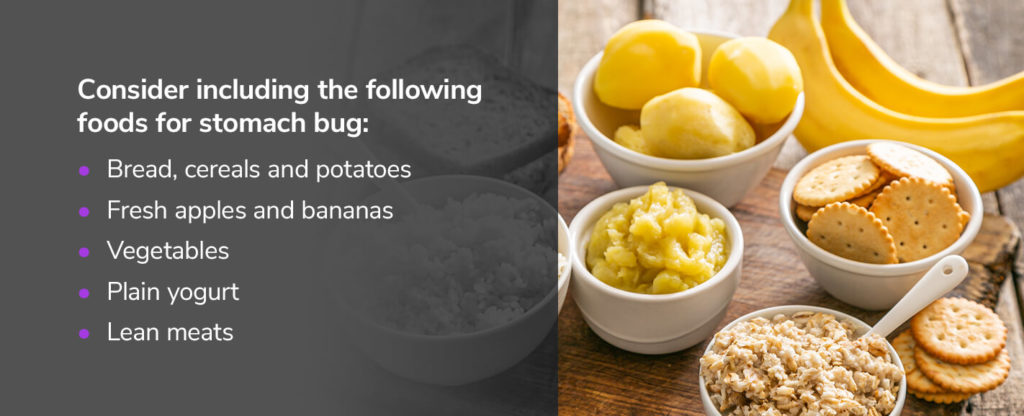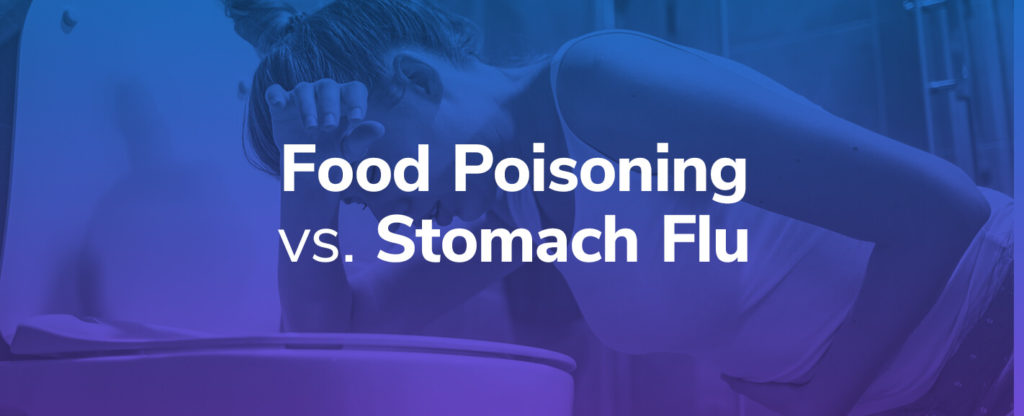Commonly referred to as the stomach flu or stomach bug, viral gastroenteritis occurs when a virus causes an infection in the stomach and intestine. This viral infection can stem from several different sources and lead to a range of uncomfortable symptoms.
Despite their similar names, the stomach flu is not the same as influenza, a respiratory infection requiring a different treatment approach. To learn more about what causes the stomach flu, gastrointestinal virus symptoms and fast stomach flu treatments, read on.
Gastrointestinal Virus Causes and Symptoms
The stomach flu can result from many different types of gastroenteritis viruses, which include the following.
- Norovirus: Outbreaks of this virus most frequently happen among school-aged children and in hospitals and cruise ships.
- Rotavirus: This virus is the leading cause of gastroenteritis in children. However, rotavirus can also infect adults living in nursing homes or after exposure to a child with the virus.
- Astrovirus: Children, the elderly and immunocompromised people are at an elevated risk of astrovirus infection.
- Enteric adenovirus: This virus primarily affects infants.
- COVID-19: The novel coronavirus is not specifically a gastrointestinal virus. However, COVID-19 may still cause stomach flu symptoms, even when typical COVID-19 symptoms — such as respiratory issues — are not present.
Gastrointestinal viruses are highly contagious and can quickly spread from person to person. Most often, gastroenteritis affects one person or a group of people who have all eaten the same food or drunk the same beverage. The gastrointestinal virus can then enter your body’s system through various means.
Typically, the virus enters in one of the following ways:
- Directly from the food or the beverage
- By way of an object, such as eating utensils, plates, napkins, etc.
- Indirectly from sharing personal items with someone who already has the virus
- From person to person due to close contact with one another or shaking hands
Once the virus enters the body, symptoms usually take less than 48 hours to appear. In general, the stomach flu comes with the same symptoms as food poisoning. The primary difference between the two illnesses is that food poisoning comes from bacteria, while viruses cause gastroenteritis.
Common stomach flu symptoms include:
- Nausea
- Vomiting
- Abdominal cramps and pain
- Diarrhea
- Low-grade fever
- Chills, sweating or clammy skin
- Muscle pain or joint stiffness
- Loss of appetite and weight loss
An intestinal infection from the stomach flu makes it difficult for the large intestine to retain fluids, which is why loose, watery stool without blood or smell is a common symptom. However, bloody diarrhea can indicate a more severe infection. Those with bloody stool should go to the ER.

Stomach Bug Remedies
Fortunately, viral gastroenteritis symptoms typically run their course within a couple of days. Because antibiotics do not work against viruses, the best stomach bug remedy is extra fluids, paired with plenty of rest. Stomach flu treatment aims to ensure the body has enough fluids and nutrients to replace the fluids and electrolytes lost via vomiting or diarrhea.
Anyone with stomach flu should be drinking extra between meals to boost their intake. However, some fluids are better than others for gastroenteritis recovery. Keep these guidelines in line when dealing with the stomach bug:
- While adults and older children can drink sports beverages with electrolytes, younger children should avoid them. Instead, young children can substitute other electrolyte and fluid replacement solutions like Pedialyte.
- Do not consume fruit juice, soda or Jell-O when treating the stomach flu. These liquids will not replace the body’s lost minerals and can make diarrhea worse.
- Instead of chugging fluids, drink small amounts on a half-hour or hourly schedule. Trying to force down large quantities of fluids at one time may cause additional vomiting.
While recovering from the stomach bug, frequent, small portions of food are better than more spaced-out large meals. Sticking with bland staple foods will also make it easier to hold the food down. Consider including the following foods:
- Bread, cereals and potatoes
- Fresh apples and bananas
- Vegetables
- Plain yogurt
- Lean meats
If gastroenteritis persists, the body might be unable to retain fluids because of diarrhea or vomiting. These patients may benefit from intravenous fluids. IV therapy delivers fluids directly to the bloodstream, so the body can absorb them more easily. Infants and young children are more likely to need to receive IV treatment.
Fast Stomach Flu Treatments
Because stomach flu symptoms set in rapidly, you need to receive treatment fast. An IV treatment is the quickest way to get your body the fluids and nutrients it needs to bounce back from the stomach bug. In addition to rehydrating you, an IV package created specifically for treating the stomach flu can help minimize other symptoms like nausea.
The following IV package ingredients can help you overcome the stomach flu more quickly.
- IV fluids: The IV fluids will help rehydrate you and deliver essential nutrients to your immune system, which is especially helpful when nausea makes drinking unappealing.
- Vitamin B complex: B vitamins supply your body with enough energy to keep its immune system functioning properly. Vitamin B6, in particular, helps immune cells fend off infection and alleviate nausea.
- Vitamin B12: This powerful B vitamin helps your immune system fight back against the stomach flu by increasing the number of immune system cells for adaptive and innate immune system responses.
- Vitamin C: As another vital immune system booster, vitamin C also supports adaptive and innate immunity. While an infection can deplete the amount of vitamin C in your immune cells, IV therapy can quickly replenish it.
- Glutathione: This anti-inflammatory agent is crucial for staying healthy because it treats aches and pains while helping prevent other sicknesses.
- Zinc: Zinc is a crucial mineral for adaptive and innate immunity because it may reduce your symptoms’ intensity.
- Anti-nausea medicine: If you feel nauseous or queasy from the stomach flu, this medicine may help lessen vomiting by blocking the transmission of nervous system signals that cause an upset stomach.
- Anti-heartburn and reflux medicine: This medication temporarily decreases the amount of acid secreted in your stomach to provide relief from the burning sensation of frequent vomiting.
- Anti-inflammatory, headache, pain and fever medicine: This medicine provides the quickest way to get rid of any aches, fever or shakiness you may feel from the stomach flu so you can get back to your regular activities as fast as possible.
Receiving an IV treatment with these components will protect you from the headaches and weakness caused by dehydration and give you fast relief from nausea, acidity and vomiting. Getting rid of these symptoms will restore your appetite so you can refill your body with the nutrients it needs to recover. In this way, IV therapy and treat immediate stomach flu symptoms and help you regain your health.

Where to Get IV Treatment for Stomach Flu in Atlanta
Like any large city, Atlanta has its occasional stomach flu outbreaks. If you contract the stomach flu in Atlanta, getting IV treatment is simple when you schedule an appointment with Mobile IV Medics. We know no one wants to go anywhere when they feel tired, nauseous and shaky, so we bring the IV treatment to you. Our registered nurses can administer your IV therapy right in the comfort of your living room.
Book your appointment online today or contact Mobile IV Medics to learn more about our services.
Sources
- https://medlineplus.gov/ency/article/000252.htm
- https://www.healthline.com/health/digestive-health/stomach-bug-or-food-poisoning
- https://www.niddk.nih.gov/health-information/digestive-diseases/viral-gastroenteritis/treatment
- https://www.healthline.com/health/pedialyte-for-dehydration
- https://www.healthline.com/nutrition/what-to-eat-when-you-have-the-stomach-flu
- https://www.ncbi.nlm.nih.gov/books/NBK63837/#ch5_s29





